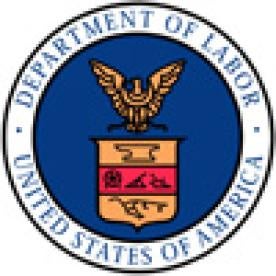This month the Department of Labor is expected to propose, for the first time since 2004, revised regulations concerning the executive, administrative, professional, outside sales, and computer exemptions under the Fair Labor Standards Act. These revisions were prompted by President Obama’s March 13, 2014 memorandum to the Secretary of Labor, which stated that the exemptions “have not kept up with our modern economy” and which “direct[ed] [the DOL] to propose revisions to modernize and streamline the existing overtime regulations.” After the memorandum was issued, the agency began writing proposed regulations and announced on May 5, 2015, that it had completed drafting them and had submitted them (as required by Executive Order 12866) to the Office of Management and Budget for review.
Procedurally, the “proposed rules” will be published in the Federal Register (an action known as a “Notice of Public Rulemaking” or “NPRM”) for public comment following the OMB’s review, and the DOL has stated that it expects to take this step this month. After the public comment period closes, the DOL will consider the public comments in drafting “final rules;” submit them for a final review by the OMB; and then publish them in the Federal Register with an effective date on which they become law. Although implementation of the final rules may not occur until well into 2016, traditionally the final rules do not differ substantially from the proposed rules. Accordingly, employers should get a sense this month of what the future regulatory landscape will look like.
So what can we expect from these revisions? As an initial matter, it’s almost certain that the DOL will raise the $455 minimum salary requirement, which hasn’t changed since 2004. With regard to the other revisions, however, the DOL’s drafting process has been opaque, and official pronouncements have been largely limited to the Presidential Memorandum and the DOL’s description of the regulatory action on its Spring 2015 agenda, neither of which provide any specific detail. Nonetheless, unofficial pronouncements (including the Secretary of Labor’s remarks before the International Association of Firefighters on March 18, 2014) have repeatedly stressed the DOL’s position that the current regulations result in too many employees falling under the exemptions, particularly retail managers who spend a large portion of their time performing non-exempt duties. Accordingly, there is speculation that the DOL may eliminate the “concurrent duties” provision of 29 CFR 541.106, which provides that simultaneously performing both exempt and nonexempt duties will not automatically disqualify an otherwise exempt employee from the executive exemption. There is also speculation that the regulations may impose a set percentage cap on the amount of time an exempt employee may spend on non-exempt duties, similar to exemption provisions under some state laws (such as California and Connecticut) and to some provisions of the pre-2004 FLSA regulations.
In any event, one thing is certain – some employees who are properly classified as exempt under the current regulations will no longer be exempt under the new rules. Employers will shortly have a preview of just how drastic these changes will be, and should begin evaluating their compliance with the regulations well in advance of the implementation of the final rules.



 />i
/>i

